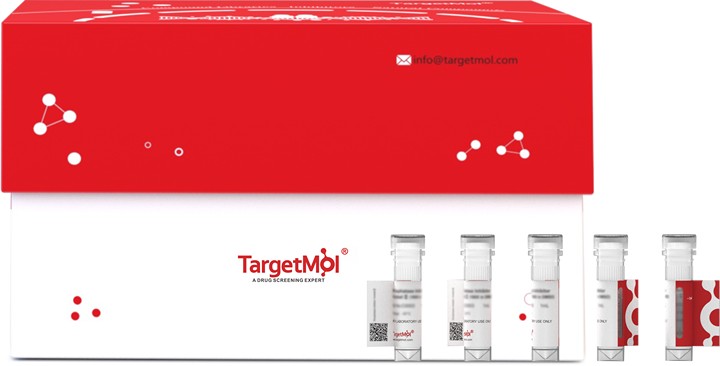Shopping Cart
- Remove All
 Your shopping cart is currently empty
Your shopping cart is currently empty

Attaches the virus to host cellular receptor, inducing clathrin-dependent endocytosis of the virion. In the endosome, the acidic pH induces conformational changes in the glycoprotein trimer, which trigger fusion between virus and endosomal membrane. VSIV (strain Mudd-Summers) Glycoprotein G Protein (His & Myc) is expressed in E. coli expression system with N-10xHis and C-Myc tag. The predicted molecular weight is 54.8 kDa and the accession number is P0C2X0.

| Pack Size | Price | Availability | Quantity |
|---|---|---|---|
| 20 μg | $360 | 20 days | |
| 100 μg | $745 | 20 days | |
| 1 mg | $2,530 | 20 days |
| Biological Activity | Activity has not been tested. It is theoretically active, but we cannot guarantee it. If you require protein activity, we recommend choosing the eukaryotic expression version first. |
| Description | Attaches the virus to host cellular receptor, inducing clathrin-dependent endocytosis of the virion. In the endosome, the acidic pH induces conformational changes in the glycoprotein trimer, which trigger fusion between virus and endosomal membrane. VSIV (strain Mudd-Summers) Glycoprotein G Protein (His & Myc) is expressed in E. coli expression system with N-10xHis and C-Myc tag. The predicted molecular weight is 54.8 kDa and the accession number is P0C2X0. |
| Species | VSIV |
| Expression System | E. coli |
| Tag | N-10xHis, C-Myc |
| Accession Number | P0C2X0 |
| Synonyms | Glycoprotein G,G |
| Amino Acid | KFTIVFPHNQKGNWKNVPSNYHYCPSSSDLNWHNDLIGTAIQVKMPKSHKAIQADGWMCHASKWVTTCDFRWYGPKYITQSIRSFTPSVEQCKESIEQTKQGTWLNPGFPPQSCGYATVTDAEAVIVQVTPHHVLVDEYTGEWVDSQFINGKCSNYICPTVHNSTTWHSDYKVKGLCDSNLISMDITFFSEDGELSSLGKEGTGFRSNYFAYETGGKACKMQYCKHWGVRLPSGVWFEMADKDLFAAARFPECPEGSSISAPSQTSVDVSLIQDVERILDYSLCQETWSKIRAGLPISPVDLSYLAPKNPGTGPAFTIINGTLKYFETRYIRVDIAAPILSRMVGMISGTTTERELWDDWAPYEDVEIGPNGVLRTSSGYKFPLYMIGHGMLDSDLHLSSKAQVFEHPHIQDAASQLPDDESL |
| Construction | 1-423 aa |
| Protein Purity | > 85% as determined by SDS-PAGE. |
| Molecular Weight | 54.8 kDa (predicted) |
| Endotoxin | < 1.0 EU/μg of the protein as determined by the LAL method. |
| Formulation | Tris-based buffer, 50% glycerol |
| Reconstitution | A Certificate of Analysis (CoA) containing reconstitution instructions is included with the products. Please refer to the CoA for detailed information. |
| Stability & Storage | Lyophilized powders can be stably stored for over 12 months, while liquid products can be stored for 6-12 months at -80°C. For reconstituted protein solutions, the solution can be stored at -20°C to -80°C for at least 3 months. Please avoid multiple freeze-thaw cycles and store products in aliquots. |
| Shipping | In general, Lyophilized powders are shipping with blue ice. Solutions are shipping with dry ice. |
| Research Background | Attaches the virus to host cellular receptor, inducing clathrin-dependent endocytosis of the virion. In the endosome, the acidic pH induces conformational changes in the glycoprotein trimer, which trigger fusion between virus and endosomal membrane. |

Copyright © 2015-2025 TargetMol Chemicals Inc. All Rights Reserved.